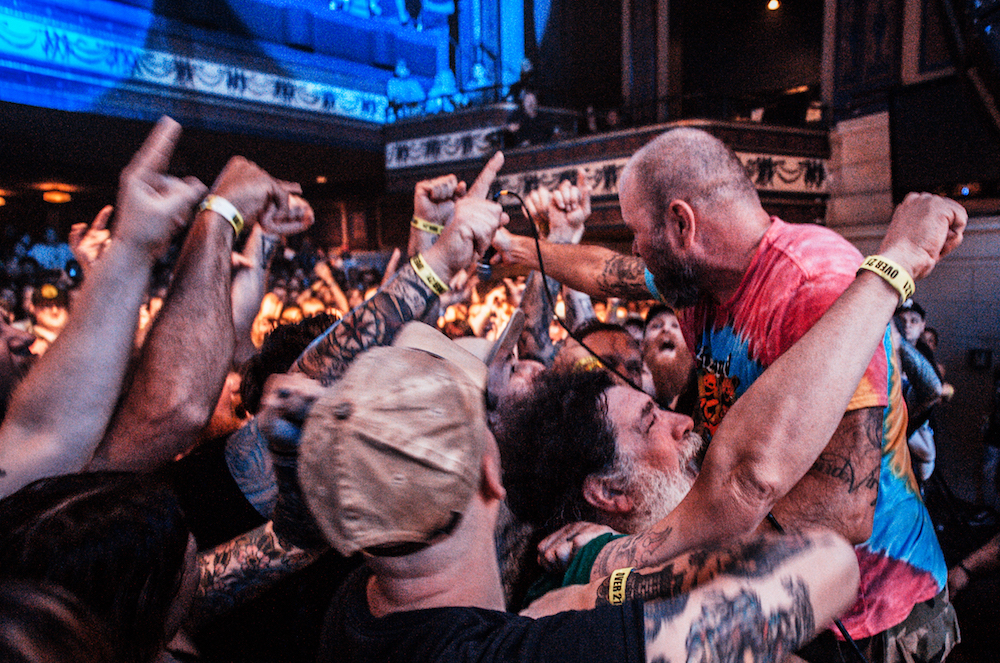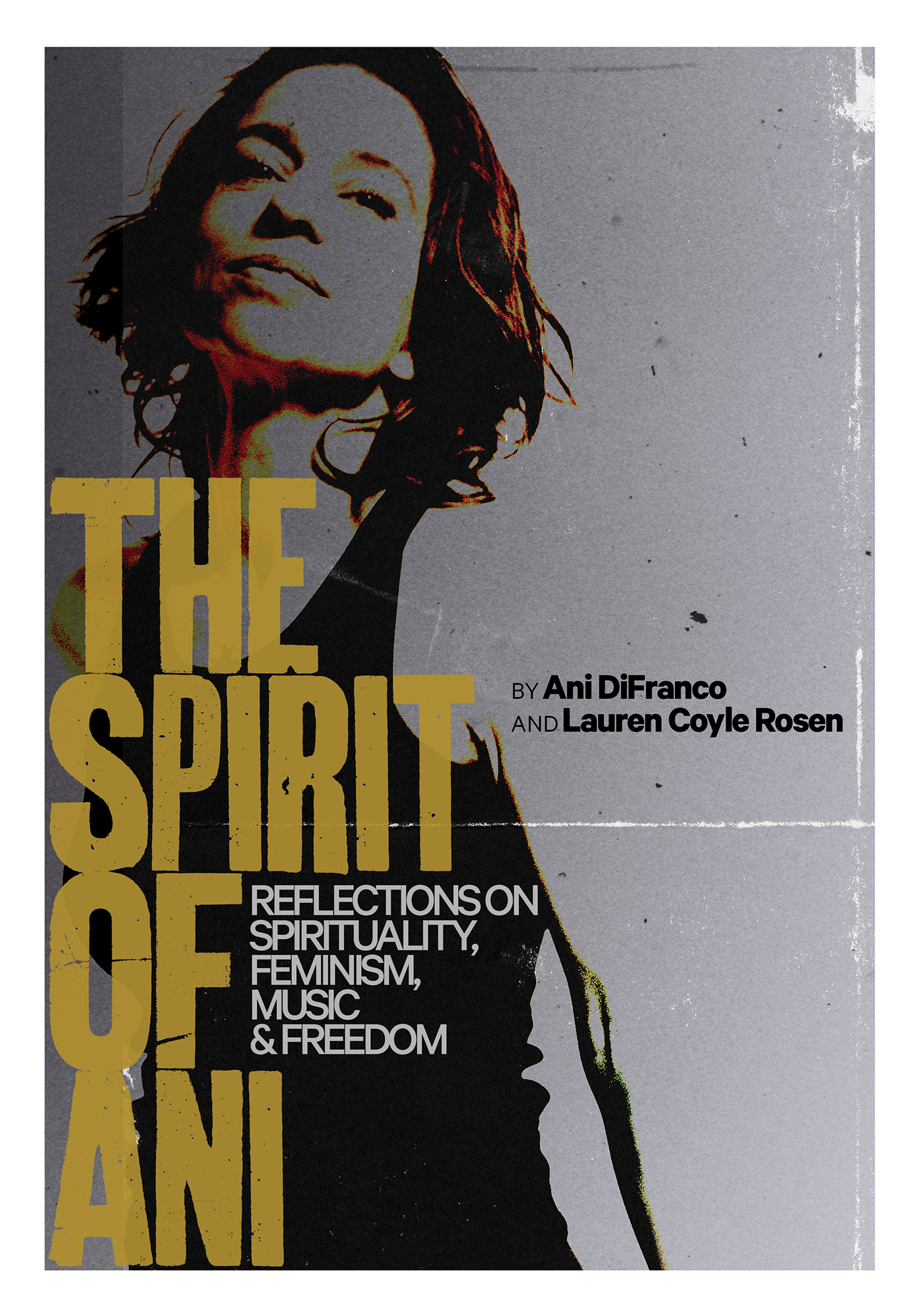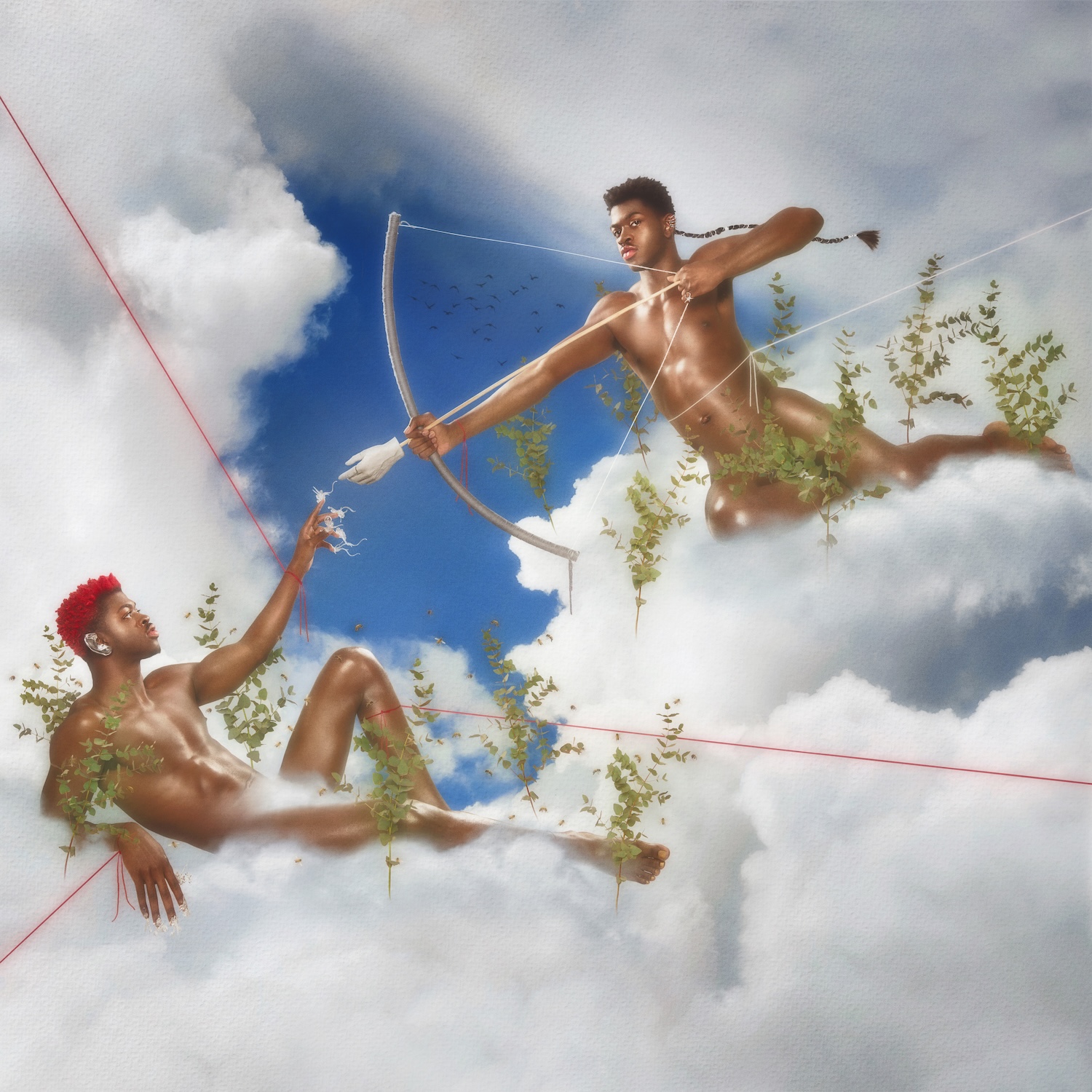One night, about 23 years ago, I watched a man named Beau Beau plant his feet, jut out his voluminously goateed chin, and trace a circle in the air with his finger. Immediately, the entire club -- the Black Cat in Washington, DC -- erupted into a massive circle pit. I'd never seen anything like it. It was like Beau Beau was a wizard, like he'd conjured this maelstrom out of thin air.
Beau Beau was a member of the Richmond, Virgnia punk band Avail, but he barely sang, and he didn't play any instruments. In the albums' liner notes, Beau Beau was credited as the "cheerleader." He was the hypeman, basically, and he was gloriously extraneous and yet somehow still totally indispensable. Even without the tatted-up and satyr-looking Beau Beau, Avail would've already been a combustible, wildly energetic live band. And even without Beau Beau, Avail would've had a deep well of anthemic, world-stomping singalong ragers -- songs that would truly come to live in rooms full of sweaty teenagers. But that night, and countless other nights, Beau Beau pushed those rooms even higher, directing and channeling those sweaty teenagers, pushing us to push ourselves harder.
That was my first Avail show. I was 16. It was the greatest live show I had ever seen. It still is. Part of it was the way the band played -- feral but rigorous, hammering every big singalong moment with the passion that it demanded. Part of it was the music itself -- classic-rock hooks played at hardcore velocity, songs building to mass-catharsis explosions on their own time while rarely sliding into verse-chorus-verse structure. Part of it was Beau Beau. And a huge part of it was the crowd -- this teeming limb-tangle of my friends and peers, all reacting to everything Avail did with frothing urgency. Before that night, I'd never seen a moshpit move rhythmically. I'd never seen a crowd build as the song built. I'd never seen a mutually supportive quasi-combat scrum that actually reacted to the music in real time with that sort of devotion. It was beautiful.
It was beautiful, again, on Friday night, when Avail reunited. That night, Avail played their first show back together in their Richmond hometown. Avail had played their final show 12 years earlier, and they'd released their final album five years before that. Again and again, the members of Avail, especially frontman Tim Barry, had said that there would never be a reunion. (Barry, a fascinating figure, spent his immediate post-Avail life living mostly off the grid, hopping freight cars and making grizzled acoustic folk music. These days, he's raising daughters and maintaining a real career as an Americana singer-songwriter for audiences who may or may not remember him as the guy from Avail.)
[videoembed size="full_width" alignment="center"][/videoembed]
Months ago, out of nowhere, Avail announced plans for a single reunion show in their hometown. Tickets sold out right away. More shows followed, including a couple of festival gigs. Maybe there will be more after this quick run ends; I don't know. But I had to be there for the first one. Missing it did not feel like an option.
That night 23 years ago, I went to my first Avail show with two of my best friends, Nat and Kris. This past Friday night, I went to the Avail reunion alone. Nat couldn't be there because his wife is due to give birth to their first baby any day now. Kris couldn't be there because he died almost 10 years ago. I'd lost touch with Kris, and his death was a serious jolt, but it wasn't a shock. He'd been struggling with different things for a long time. But going into the Avail reunion show, something occurred to me, something that should've been obvious a long time ago. My friends and I had latched onto punk rock in the '90s -- both the music and the community that surrounded it -- because we were coping with difficult things. Most of us made it out. Some of us didn't.
Avail, in particular, were a coping band. They were a word-of-mouth band, for one thing. You picked up on them because your friends put you onto them. (For Nat, Kris, and me, it was a mixtape from an older punk kid that we'd admired.) If you knew about them, you felt like you were in on something. But there were a lot of bands like that. Avail had other things going on, things that made them special.
Avail were gruff and hardened and worn-in. They sang about dark nights of the soul, and about not even feeling entirely at home in Richmond, the city of which they were fiercely proud. Like a lot of the best hardcore bands, Avail were about powering though adversity, rather than immersing yourself in it. They played fast and loud, but there were these dynamics that would constantly shift. Certain Avail songs would have moments of almost Springsteen-level grandeur, and those moments would be more precious because they were so fleeting. Most of the time, those moments wouldn't be choruses. They'd just be isolated instants, here and then gone.
Avail would always project strength, but Barry would also sing about moments of all-consuming hopelessness. And a lot of the time, the moments where he sounded strongest were the ones where he was the most vulnerable: "I'd do anything to look that way! I'd do anything to look that way!" Or: "We live alone now! We live alone now! No one is to blaaaaame!" Or: "I need a place! To lay my heeeead!" Barry's voice was wizened, barrel-chested, weirdly soulful, and yet he used it to give life to these convulsive mosh-music anthems. There was never any posturing to Avail. They were gruff and tender and wounded and incensed. At a time when I needed a band like that, they were the band that I needed.
If there were any teenagers at the Avail reunion show, I didn't see them. (I saw a few actual children, in ear-protecting headphones and too-big punk-band shirts, on bonding missions with their parents, but that's different.) Instead, the people who came out to that first Avail reunion show were the lifers, the ones who'd seen the band multiple times in the distant past and who couldn't believe that they were getting to see them again. It didn't matter that I went to the show alone. It didn't matter that I didn't run into a single person who I used to know. This was the type of show where you shout lyrics into a stranger's face and he shouts them back at you. Everyone was old and creaky and happy. We were the ones who'd made it out, and we knew it.
[videoembed size="full_width" alignment="center"][/videoembed]
Avail opened their first show in 12 years with "South Bound 95," one of the songs that was on that mixtape from the cool older punk kid. The day after I graduated high school, Nat and I had driven down from Baltimore to see Avail at the Capitol Ballroom in DC. (Nat, on the drive down: "Dude! We're on southbound 95 to go see Avail!" That night, they'd also opened with "South Bound 95.") Tim Barry had passed me the mic during the first chorus, and that moment meant more to me than anything related to my high school graduation. Avail's catalog is lousy with dynamic slow-burners, but "South Bound 95" is a classic punk rave-up, all frantic rabid howling. And being in that venue, seeing them do that song, was a fucked-up unstuck-in-time moment. All of a sudden, I was 16, and 18, and 27, and every other age that I've ever been at an Avail show.
Maybe the members of Avail felt that way, too. Guitarist Joe Banks, upon arriving onstage: "Holy shit!" A relatively stoic and matter-of-fact Tim Barry, a few songs in: "This feels good." There wasn't a whole lot of speechifying during the show, beyond the heartfelt thank-yous to the fans who'd come a long way to see the show and to the venue staff who'd made it possible. (Shout out to any band that shouts out nightclub janitors.)
The members of Avail are all in their late 40s or maybe early 50s, and they're not whirlwinds of energy anymore. But they were built for it. Beau Beau doesn't quite move like a gibbon anymore, but he moves better than I do, and he also brings out a lot of comedy props: Foam fingers, Super Soakers, a giant novelty cowboy hat. (I love watching that fucking guy.) Tim Barry radiates intensity even when he's standing still during the quiet instrumental passages. The rest of the band play with fire and determination, and when they sound sloppy, they only sound sloppy in a good way.
Just about everyone in the room knew every word to every song -- a real among-friends feeling in a room full of strangers. I spent most of the show standing near the back -- I'm tall, and I don't want to be a dick -- and people at the back sang as loud as people in the front. If someone turned down the volume on Avail's amps, it would've sounded like the damn Dashboard Confessional MTV Unplugged, just with wizened smokers'-hack old-punker voices. But when Avail played "FCA" -- my favorite of their straight-up hardcore songs -- I rushed the pit, the way I always did at every Avail show I ever saw. I was out of breath by the time I made it to the middle of the pit. Such is age. None of the actual members of Avail ever looked as out of breath as I felt in that moment. Good on them. They put the work in.
The actual pit, when I was in it, was something less than pandemonium. It was just sort of happy jostling, nobody going too nuts. We were all just reenacting the ritual, living out teenage memories. At one point, Beau Beau traced that circle with his finger. I braced myself, ready for what was about to break out. But this time, no circle pit happened. Nobody wanted to go to all that trouble. After all, none of us were kids anymore. And we'd already made it out.
[videoembed size="full_width" alignment="center"][/videoembed]
[videoembed size="full_width" alignment="center"][/videoembed]






